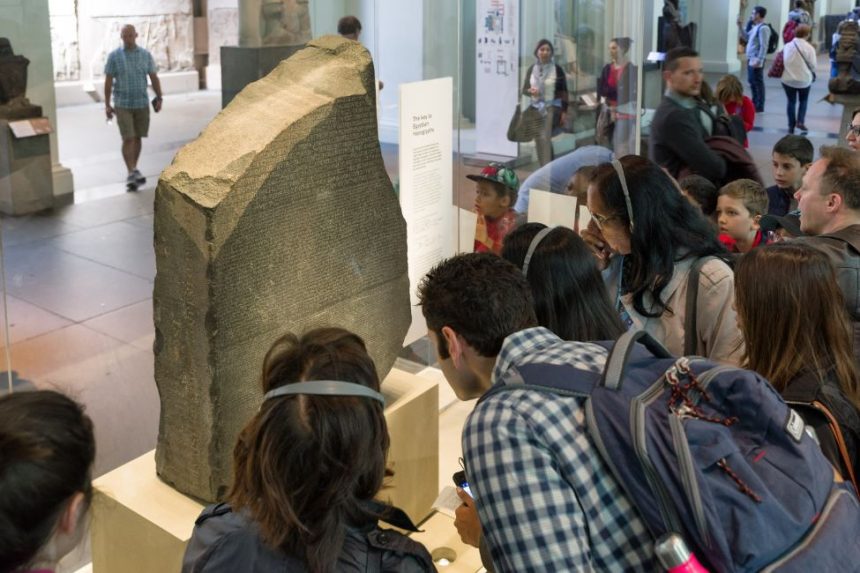A magnificent block of black granite. The Rosetta Stone, a multilingual inscription, was instrumental in making the ancient Egyptian hieroglyphics comprehensible.
Growing appeals for its return have been made more than 200 years after British Empire armies transported it from Egypt to Great Britain. The creator of two petitions for the return of the stone is Monica Hana.
“I think all nations have the right to ask back for their heritage,” the dean at the Arab Academy for Science, Technology & Maritime Transport says.
“In the 19th century, there was also – slavery was legal, child labor was legal and women had no rights. Today, we are in the 21st century and we have to correct the mistakes of the past and correct the mistakes of the history because we cannot change it.”
The British Museum disputes the claim that the stone was taken unlawfully, asserting that a treaty from 1801 bears the signature of an Egyptian envoy who fought alongside the British against the French to control the region of north Africa.
At the time of Napoleon’s invasion, Egypt was ostensibly under the control of the Ottoman Sultan in Istanbul.
The black stone slab was discovered by a French soldier 35 miles east of Alexandria, close to Rosetta.
“The Rosetta Stone for me, is a symbol of western colonialism over my culture. It represents a spoil of war, it represents cultural violence”, Monica Hana explained.
“I’m not only asking for it’s restitutional repatriation, I’m also training generations of students who will become researchers to continue the fight until the Rosetta Stone is back in Egypt.”
Western museums have traditionally used better-equipped spaces and higher visitor numbers to support their collection of priceless global artefacts.
While some institutions are returning artefacts to their rightful owners, the bulk are still in their collections. Allowing instance, the Prussian Cultural Heritage Foundation and Nigeria reached an agreement for one-third of the artefacts to remain on loan.
“My message to the British Museum is that it’s about time that you find a new role for your museum in the 21st century. The British Museum is still locked up as a cabinet of curiosity in the 19th century. They need to find a new vision and a new philosophy for their role as a museum, and restitution and repatriation is at the heart of this new philosophy.”
The Rosetta stone, which was carved in the second century B.C., has not been requested back by the Egyptian government, according to the Museum.
The granite slab is one of over 100,000 artefacts from Egypt and Sudan that are kept in the British Museum.







